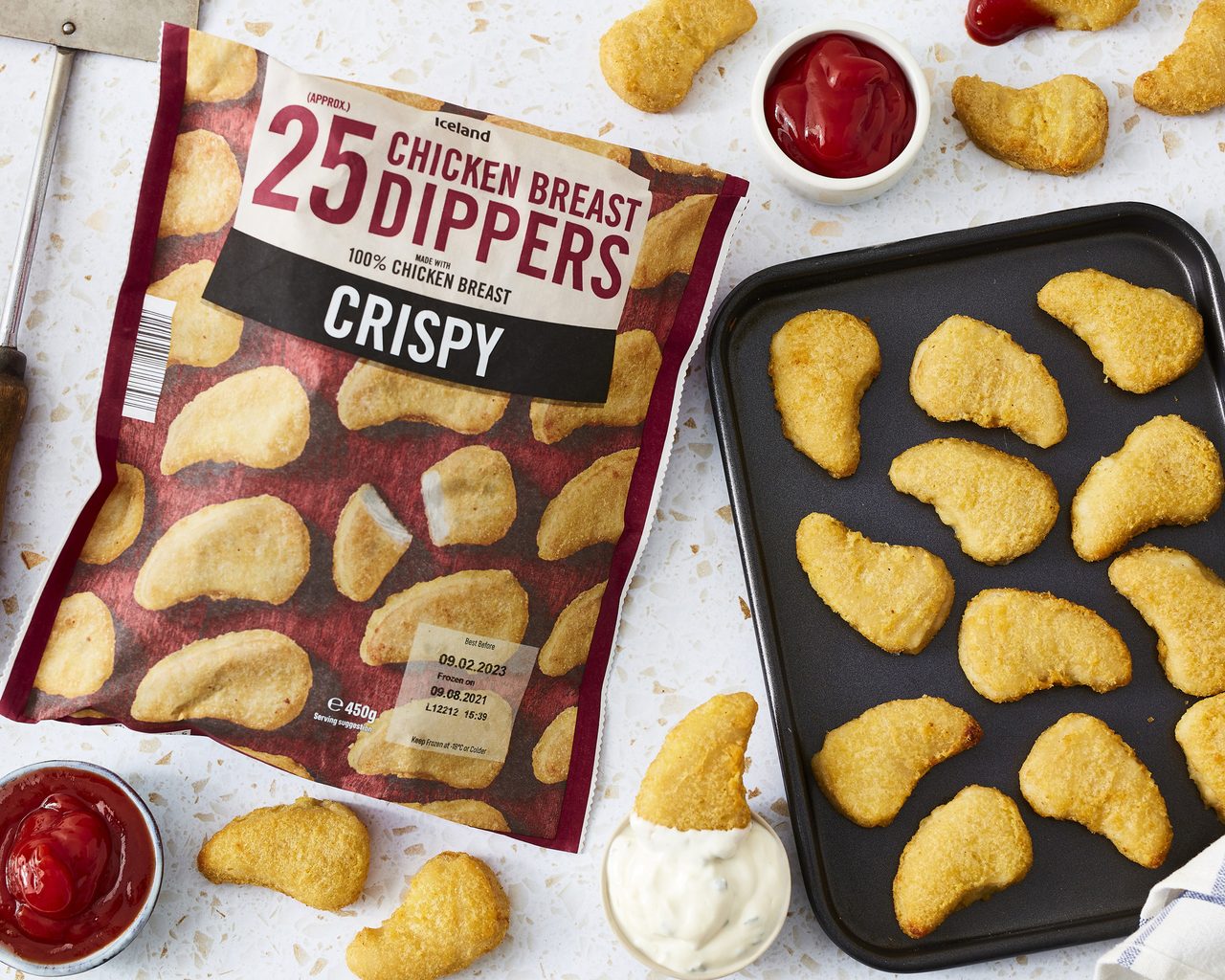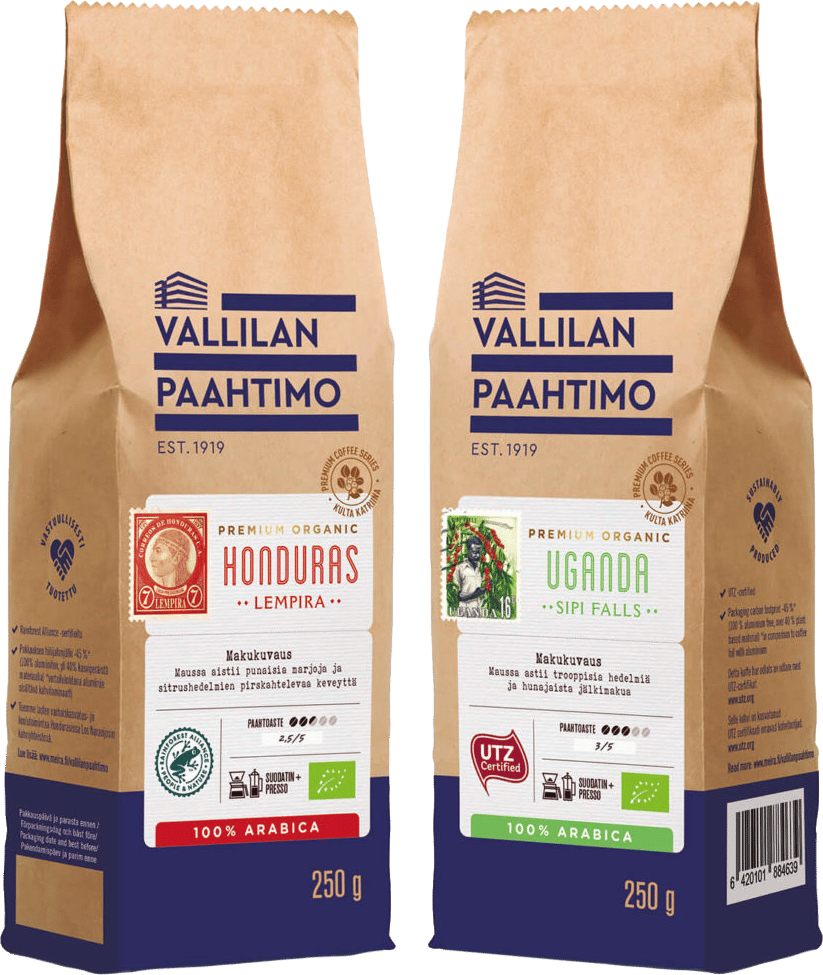
INDUSTRY TRENDS
Iceland’s Paper-Meets-Plastic Flexible Pillow Pouches
UK-based supermarket chain, Iceland, announces a new paper-meets-plastic pillow pouch packaging for its line of frozen chicken breast dippers. Plus, more industry news on paper-based flexible packaging.
By Grant Gerke
Paper-meets-plastic packaging has been making inroads in Europe for the past two years as regulatory drivers and company initiatives have pushed food producers to add more recyclable content to their packaging. In late 2021, UK-based grocer Iceland introduced its line of frozen Chicken Dippers and has branded the package as a paper pillow pouch that will reduce the company’s plastic footprint and increase recycling rates.
Mondi Packaging Group supplies the flexible pillow pack that's 90% paper and 10% plastic to provide optimal barrier properties in the rugged frozen food section. “Iceland has been bold in our aims to remove plastic: We were the first UK retailer to publish our plastic footprint along with our pledge to ultimately become plastic free,” says Stuart Lendrum, head of packaging, quality and food safety at Iceland. “To deliver on this ‘Doing it Right’ promise, we knew we would need the expertise of global packaging suppliers like Mondi.”
ADVERTISEMENT
To obtain optimal barrier properties, sealing properties and protect frozen food in the best possible way, the flexible packaging supplier uses an innovative process to apply “a wafer-thin coating of polyolefins that provides all the necessary barriers,” according to Mondi Packaging. The flexible packaging supplier offers three grades of the functional barrier paper, including an option that is certified fully recyclable and suited for food applications, according to Mondi.
The functional barrier paper has the same shelf life of the previous packaging for Iceland and can run on existing form/fill/seal machinery for co-packers or in-house packaging operations. The paper is printed and coatings are added in Europe. Mondi claims this paper-based structure is a fully integrated solution made from renewable resources, and offers that it’s easy for consumers to recycle the paper in existing waste streams.
Iceland is in full-blown execution mode with its circular economy strategy, as the UK supermarket company is also partnering with Seven Clean Seas to recover and recycle nature-bound plastic in an equivalent weight of the retailer's plastic usage.

The flexible pillow pack for frozen chicken tenders relies on 90% percent paper and 10% plastic to provide optimal barrier properties.
Photo courtesy of Mondi Packaging Group
Paper-Based Pilots Gaining Steam
As reported in Flexible Packaging magazine in 2021, many food producers in Europe are running pilot programs and in production with new types of packaging for certain sectors, such as flours and grains at Bauck GmbH. The German-based company ran a pilot program using paper, gable-top packaging and then ramped up production and integrated the new format in 2020. The food produced is using the same machinery for production, Rovema’s SBS form/fill/seal machine for both plastic-based and paper pouch production runs.
Similar to Iceland’s pillow packs, Bauck uses integrated barrier coating against mineral oil (MOSH/MOAH) and grease, along with heat-sealable properties from Sappi Globa.
Now, U.S.-based Kellogg’s is turning to a pilot program in UK-based Tesco grocery stores that will use a paper-based liner bag for a variety of cereals through 2022. The pilot program is part of Kellogg’s Wellbeing Manifesto and looks to improve its packaging in the UK and evaluate alternatives to plastic liners.
“Ultimately, we would prefer plastic liners to be accepted in home recycling as our data tells us that they are better for the planet over the full life cycle of the packaging, but this trial ensures we have an alternative,” says Chris Silcock, managing director of Kellogg UK and Ireland.

Bauck ran a pilot program using paper, gable-top packaging and then ramped up production and integrated the new format in 2020.
Photo courtesy of Bauck GmbH
Plus, new plastic taxes are going into effect in 2022 in Europe and the UK. Flexible Packaging reported back in December 2021 about the UK’s tax liable” plastic packaging law, which goes into effect April 2022. The tax adds £200 per tonne to any plastic packaging components that don’t meet 30% recycled content, and the regulatory rule would be applied to the converter, not the importer.
“We are committed to working with our suppliers to remove, reduce, reuse and recycle packaging, and particularly plastic,” says David Beardmore, grocery director at Tesco grocery. “It’s great to see that Kellogg’s is trialing a paper cereal bag in our stores — our customers will be pleased that they can easily recycle the bag at home.”
Not to be outdone in Europe, Amcor announced in a recent press release that a new platform of paper-based packaging products called AmFiber will be introduced in 2022. The new line of paper-based solutions will “redefine the capabilities of traditional paper packaging and meet the changing needs of consumers,” according to Amcor.
The first AmFiber product for 2022 will be directed at snack and confectionery customers in Europe, a recyclable package that offers high-barrier properties. Besides confectionery, the flexible packaging supplier will expand its paper-based offering into a variety of applications into the Americas and Asia-Pacific regions, including coffee, drink powders, seasoning and soups.
“Amcor’s long-term experience in paper and carton packaging was the basis for launching the AmFiber platform,” says Ron Delia, CEO of Amcor. “This family of differentiated paper-based products builds on Amcor’s extensive track record across multiple materials and applications.”
Video by Freezelight / Creatas Video via Getty Images
March 2022 // flexpackmag.com
